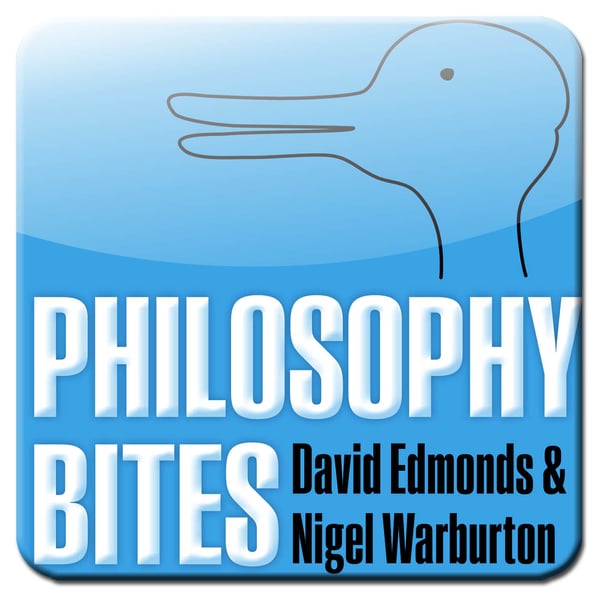Hanno Sauer on The World History of Morality
Philosophy Bites
Nigel Warburton
4.6 • 2K Ratings
🗓️ 11 July 2025
⏱️ 25 minutes
🧾️ Download transcript
Summary
How did morality evolve? Why do different cultures have such a similar set of moral norms and values? Hanno Sauer gives an evolutionary story that explains the genealogy of morality through human co-operation.
Transcript
Click on a timestamp to play from that location
| 0:00.0 | This is Philosophy Bytes with me Nigel Warburton and me David Edmunds. |
| 0:07.0 | If you enjoy Philosophy Bytes, please support us. For details, go to www.philosophybites.com. |
| 0:15.0 | Different societies in different parts of the world differ in fundamental ways but nonetheless agree on certain aspects of morality. |
| 0:23.1 | No society believes it's acceptable to murder innocent people, for example. |
| 0:27.5 | Virtues like love and generosity are pretty much universal. |
| 0:31.2 | Why? What is the origin of this morality? |
| 0:34.5 | Hanno Sauer of Utrecht University tells an evolutionary story. |
| 0:39.1 | Hano Zauer, welcome to Philosophy Bites. |
| 0:42.0 | Thank you for having me. |
| 0:43.3 | The topic we're going to focus on is the world history of morality. |
| 0:48.6 | Could you just give us a kind of sense of what the topic is, what it means? |
| 0:53.2 | I've always been interested in the sort of genealogical questions in morality, |
| 0:58.6 | so not to do moral philosophy from the armchair, but to have lots of empirical input |
| 1:02.6 | and to look at the origins of our norms and values. |
| 1:06.5 | And then I try to find a structure for that kind of topic because it's so big, it's so unwieldy, |
| 1:12.6 | and I tried to come up with some sort of organizing principle for how to make it work, and I think I found a good one. |
| 1:18.6 | So obviously Nietzsche is the most famous genealogist of morality. |
| 1:22.6 | He had a book called The Genealogy of Morality where he purported to explain how we came to have concepts like |
| 1:29.3 | compassion and guilt and so on. Is what he did different from the kind of thing that you were attempting? |
| 1:36.9 | Yeah, it's different. I mean, what I do is obviously inspired by that approach, |
| 1:42.0 | but I sometimes like to say that what I do is like need to but true. |
| 1:46.3 | So I try to update it with the best available modern theories and concepts and ideas and evidence and data and studies. |
... |
Transcript will be available on the free plan in 5 days. Upgrade to see the full transcript now.
Disclaimer: The podcast and artwork embedded on this page are from Nigel Warburton, and are the property of its owner and not affiliated with or endorsed by Tapesearch.
Generated transcripts are the property of Nigel Warburton and are distributed freely under the Fair Use doctrine. Transcripts generated by Tapesearch are not guaranteed to be accurate.
Copyright © Tapesearch 2025.

